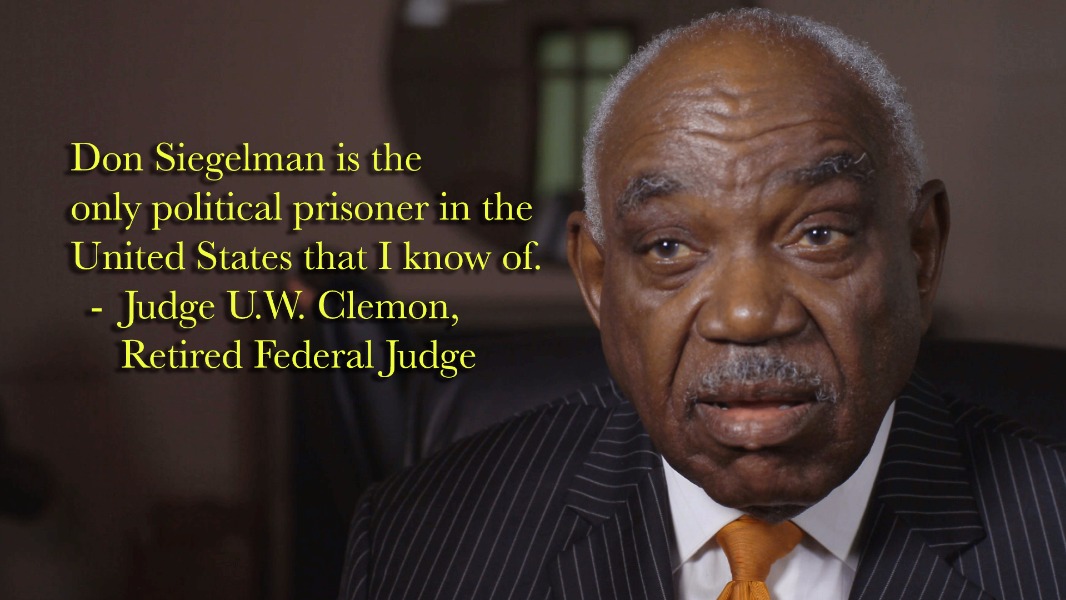eagle1462010
Diamond Member
- May 17, 2013
- 73,495
- 38,505
- 2,605
How the GOP Framed Gov. Don Siegelman
Framing a political opponent
Pryor had won his reelection bid in 1998 to Alabama’s top legal office with the help of two campaign managers, one of whom is remarkably well known because he would later go on to lead the George W. Bush victory in the 2000 election: Karl Rove. Pryor’s other campaign manager was a longtime GOP operative by the name of Bill Canary. Canary would emerge as the campaign manager for Siegelman’s opponent, Bob Riley, in the 2002 election. After Pryor was re-elected in 1998, he almost immediately began investigating Siegelman, who was then Lieutenant Governor. Siegelman appears to have made an enemy of Pryor as early as 1997, when he criticized the latter’s close relationship with the tobacco industry. Pryor’s history and relationship with Canary and Rove should have been reason enough for the Alabama Attorney General to recuse himself from the November 2002 election controversy. But Pryor refused.
A year earlier, in 2001, President Bush had appointed Leura Canary to serve as U.S. Attorney for the Middle District of Alabama. If that last name sounds familiar, it is because her husband is Bill Canary. Leura Canary had begun working on Siegelman’s case almost as soon she took office, when she federalized Attorney General Pryor’s ongoing state probe. After spending six months investigating Siegelman, Leura Canary was forced to formally recuse herself from the investigation because of her husband’s connections to the Riley campaign. At least she gave the appearance of recusing herself; no evidence of this recusal has ever been found, and all requested documents from the Department of Justice are MIA. By all accounts, Leura Canary continued to conduct the investigation from behind the scenes. This resulted in her delivering an indictment in 2004 of conspiracy and fraud in which Siegelman and two alleged co-conspirators were said to have rigged Medicaid contracts in 1999. However, only a few months after filing the indictment, the U.S. Attorney’s prosecuting the case were held in contempt of court, and the case against Siegelman was dismissed.
Expanding on her original allegations, Simpson testified on September 14, 2007 before lawyers for the House Judiciary Committee and dropped a bombshell revelation. Describing a conference call among Bill Canary, Rob Riley and other Riley campaign aides, which she said took place on November 18, 2002-the same day Don Siegelman conceded the election-Simpson alleged that Canary had said that “Rove had spoken with the Department of Justice” about “pursuing” Siegelman and had also advised Riley’s staff “not to worry about Don Siegelman” because “‘his girls’ would take care of” the governor.
The “girls” allegedly referenced by Bill Canary were his wife, Leura, and Alice Martin, another 2001 Bush appointee as the U.S. Attorney for the Northern District of Alabama. Simpson added that she was told by Rob Riley that Judge Mark Fuller was deliberately chosen when the Siegelman case was prosecuted in 2005, and that Fuller would “hang” Siegelman.
Framing a political opponent
Pryor had won his reelection bid in 1998 to Alabama’s top legal office with the help of two campaign managers, one of whom is remarkably well known because he would later go on to lead the George W. Bush victory in the 2000 election: Karl Rove. Pryor’s other campaign manager was a longtime GOP operative by the name of Bill Canary. Canary would emerge as the campaign manager for Siegelman’s opponent, Bob Riley, in the 2002 election. After Pryor was re-elected in 1998, he almost immediately began investigating Siegelman, who was then Lieutenant Governor. Siegelman appears to have made an enemy of Pryor as early as 1997, when he criticized the latter’s close relationship with the tobacco industry. Pryor’s history and relationship with Canary and Rove should have been reason enough for the Alabama Attorney General to recuse himself from the November 2002 election controversy. But Pryor refused.
A year earlier, in 2001, President Bush had appointed Leura Canary to serve as U.S. Attorney for the Middle District of Alabama. If that last name sounds familiar, it is because her husband is Bill Canary. Leura Canary had begun working on Siegelman’s case almost as soon she took office, when she federalized Attorney General Pryor’s ongoing state probe. After spending six months investigating Siegelman, Leura Canary was forced to formally recuse herself from the investigation because of her husband’s connections to the Riley campaign. At least she gave the appearance of recusing herself; no evidence of this recusal has ever been found, and all requested documents from the Department of Justice are MIA. By all accounts, Leura Canary continued to conduct the investigation from behind the scenes. This resulted in her delivering an indictment in 2004 of conspiracy and fraud in which Siegelman and two alleged co-conspirators were said to have rigged Medicaid contracts in 1999. However, only a few months after filing the indictment, the U.S. Attorney’s prosecuting the case were held in contempt of court, and the case against Siegelman was dismissed.
Expanding on her original allegations, Simpson testified on September 14, 2007 before lawyers for the House Judiciary Committee and dropped a bombshell revelation. Describing a conference call among Bill Canary, Rob Riley and other Riley campaign aides, which she said took place on November 18, 2002-the same day Don Siegelman conceded the election-Simpson alleged that Canary had said that “Rove had spoken with the Department of Justice” about “pursuing” Siegelman and had also advised Riley’s staff “not to worry about Don Siegelman” because “‘his girls’ would take care of” the governor.
The “girls” allegedly referenced by Bill Canary were his wife, Leura, and Alice Martin, another 2001 Bush appointee as the U.S. Attorney for the Northern District of Alabama. Simpson added that she was told by Rob Riley that Judge Mark Fuller was deliberately chosen when the Siegelman case was prosecuted in 2005, and that Fuller would “hang” Siegelman.



